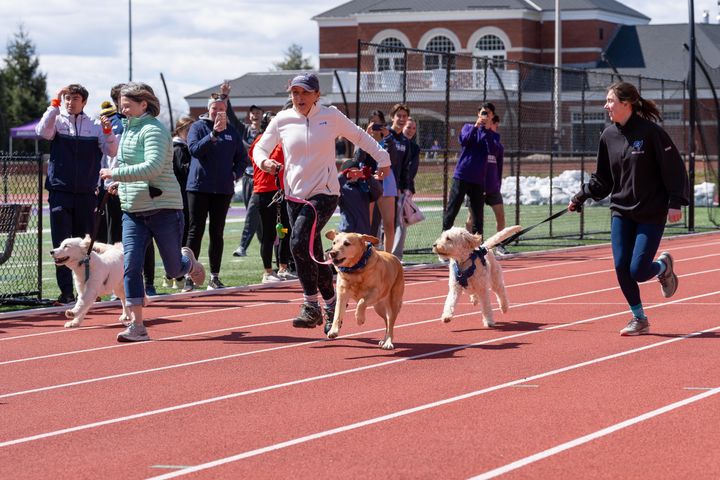Editorial: Sustaining Activism
The Editorial Board, reflecting on student activism on campus, calls for a movement that centers community, producing a culture of organizing that will sustain its members — and thereby, sustain itself.
In 2015, a group of Amherst students occupied Frost Library to demand that the administration commit to anti-racist policies, including changes to the honor code, the creation of the Latinx and Latin American Studies major, and increased resources for affinity groups. This event, the Amherst Uprising, successfully used student momentum to effect permanent change on campus. Political organizing on campus has seen different levels of success and sustainability over the years: student activism has resulted in divestment from fossil fuels and the Sudanese government, whereas efforts to unionize student workers and improve the college’s labor practices have faltered. In 2022, the Amherst Labor Alliance drew attention by protesting at a Board of Trustees dinner, yet the event failed to push staff unionization efforts on campus forward.
Two weeks ago, Smith College students began occupying the campus’ main administrative building to call for the college’s divestment from weapons manufacturers involved in Israel’s war on Gaza. As students across the US organize for Palestine, the Amherst community should consider how best to move towards a grounded, sustainable approach to activism at the college.
Despite the presence of student activist groups, such as Amherst for Palestine, prolonged and consistent action is rare on campus. Activism is both tiring and sometimes unrewarding, and, in a demanding environment, it becomes the first thing to go among a plethora of other responsibilities.
Additionally, the campus is deeply divided by race and class. Students often cluster around those with similar backgrounds, limiting opportunities for solidarity across identities and belying Amherst’s ostensible efforts to diversify. Among such separations, it is difficult for any organizer to get the campus to rally around one singular cause. This lack of social solidarity then creates burnout within activist spaces by ensuring that the work falls on a limited number of students. Creating a culture of activism requires a few students to bear the labor required to encourage a large number of students to cross these divides.
Sustaining the social infrastructure for activism on campus also necessitates that student activists reconsider the ways activism sustains. We, as a campus, are phenomenal at mobilizing around an issue almost instantaneously. Large-scale rallies around very current issues, such as a May 2022 rally for reproductive justice after the leaked draft of the Dobbs decision, are certainly successful. However, the student body has not been able to produce from actions like this any kind of sustaining or culturally prevalent activism. This kind of change will not be brought about by more anger about the biggest issues of the day. Instead, sustained activism must be a practice of building community. Organizers should seek an explicit vision for their activism that brings people into community and builds people up. Activist spaces should be spaces that are supportive of people, that operate around a politically specific cause because of community. Activism is sustained by people, not by issues. And so, activist spaces that are built first to support the people in them will be the spaces that sustain.
But sustaining spaces can’t be built without the understanding among students that change, though possible, requires immense endurance. Some political goals simply can’t be accomplished during the college career of any individual student — proving the very need for continuous activism. This is part of why activist groups on campus are often seen as politically powerless.
However, students also often simply don’t believe in themselves as political actors. And while it is true that our voices have little impact on a national or global scale, we have enormous influence in our own community. Students at Amherst can register in Massachusetts to vote in elections here, in the town where many of us spend almost all of our time. Local elections here can really be changed by small numbers of voters, and issues such as alternative policing, affordable housing, and school budget cuts are literally on the ballot.
By participating in political processes on a local level, whether by voting or volunteering for local organizations in the valley, we can prove to ourselves that our voices have real impacts on the world around us. We do take part in community every time we interact with the college and its surroundings, and our actions do have an impact in the world. This feels a little like starting small, but it is through refocusing on the essentials of organizing — that is, being in community — that will allow us to continue movements past any student’s time at the college. We are capable of producing and sustaining a culture of organizing, as long as that culture helps to sustain us.
Unsigned editorials represent the views of the majority of the Editorial Board — (assenting: 12; dissenting: 1; abstaining: 0)





Comments ()